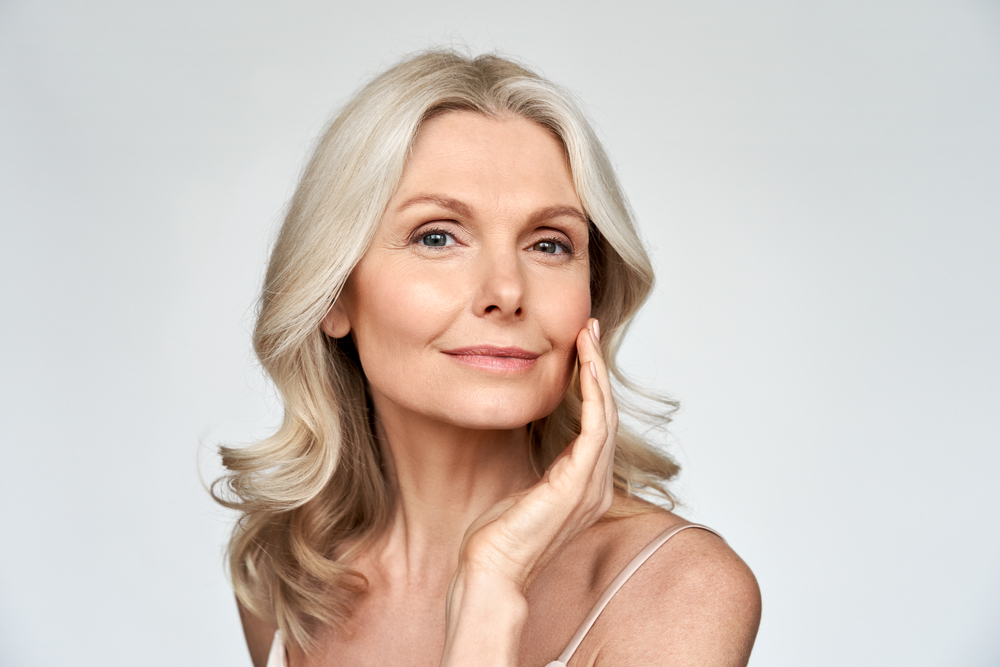Aging impacts every part of the body, from aching joints to the efficiency of your digestive system, but perhaps the most visible signs of aging show up on your skin. Our skin acts as the “front page” of our bodies, revealing the passage of time more clearly than any other organ.
As experts point out, wrinkles, sagging, and discoloration are all natural effects of aging. Over time, your skin also becomes more fragile, more prone to dryness, itching, and the occasional rash. “Aging is a natural process that everyone goes through, and honestly, it’s better than the alternative,” says Dr. Zaineb Makhzoumi, a dermatologic surgeon affiliated with the University of Maryland Medical System.
While there’s undeniable beauty in aging skin, if you’re aiming for a youthful glow, there are plenty of options available. Dermatologists suggest everything from over-the-counter creams to more advanced in-office treatments that can help maintain a vibrant complexion, no matter your age.
“We can approach this process with a light touch or be more aggressive, depending on what people are looking for,” Dr. Makhzoumi advises.
Let’s break down five specific ways your skin changes as you age, along with expert tips on keeping it looking fresh. One of the first things to go as we get older is collagen, the key protein that gives skin its firmness and elasticity. Collagen production actually begins to decline as early as your mid-20s, and by the time you hit your 30s, you’re losing about 1 percent of it each year, Makhzoumi explains.
“Collagen is crucial because it acts as the structural support that keeps your skin from sagging,” she notes. Without it, skin tends to lose its firmness and starts to droop.
Unfortunately, sun exposure speeds up the breakdown of collagen, damaging the fibers in your skin. This loss of elasticity leads to sagging, wrinkles, and fine lines. Other contributors to wrinkles include smoking, pollution, stress, genetics, and years of repetitive facial expressions, but the sun is by far the biggest culprit, Makhzoumi stresses.
To combat existing wrinkles, dermatologists recommend creams with retinol, which helps boost collagen production and increases cell turnover, effectively reducing fine lines. Retinol is available in various strengths, from over-the-counter options to stronger prescription formulas like Retin-A and tretinoin.
For those looking for more dramatic results, in-office treatments offer several options, though they are typically not covered by Medicare or insurance. Procedures like Botox, hyaluronic acid fillers (such as Restylane and Juvederm), laser resurfacing, dermabrasion, and microneedling can help smooth out wrinkles and rejuvenate the skin. As we age, our outer skin layer thins out, largely due to the gradual loss of collagen and subcutaneous fat, explains Dr. Melanie Palm, a dermatologist and founder of Art of Skin MD in California.
“You might notice your skin becoming more transparent and fragile,” Palm says. “That youthful glow starts to fade.”
Both aging and sun exposure contribute to this thinning, she adds. Additionally, the number of pigment-producing cells in your skin decreases, causing your skin to appear paler and more translucent. Over time, this can result in a wrinkled, paper-like texture, making the skin more susceptible to damage.
As your skin thins, the blood vessels underneath become more fragile, leading to easier bruising. “It’s not uncommon to see bruises from even minor bumps,” says Dr. Richard Lucariello, a dermatologist at Waccamaw Dermatology in South Carolina. “Sometimes just lightly bumping your arm on a table can cause a bruise.”
This natural progression of aging skin, while inevitable, can be managed with the right approach. Whether through lifestyle adjustments, skincare routines, or professional treatments, there are ways to help your skin age gracefully, maintaining its health and radiance for years to come.


